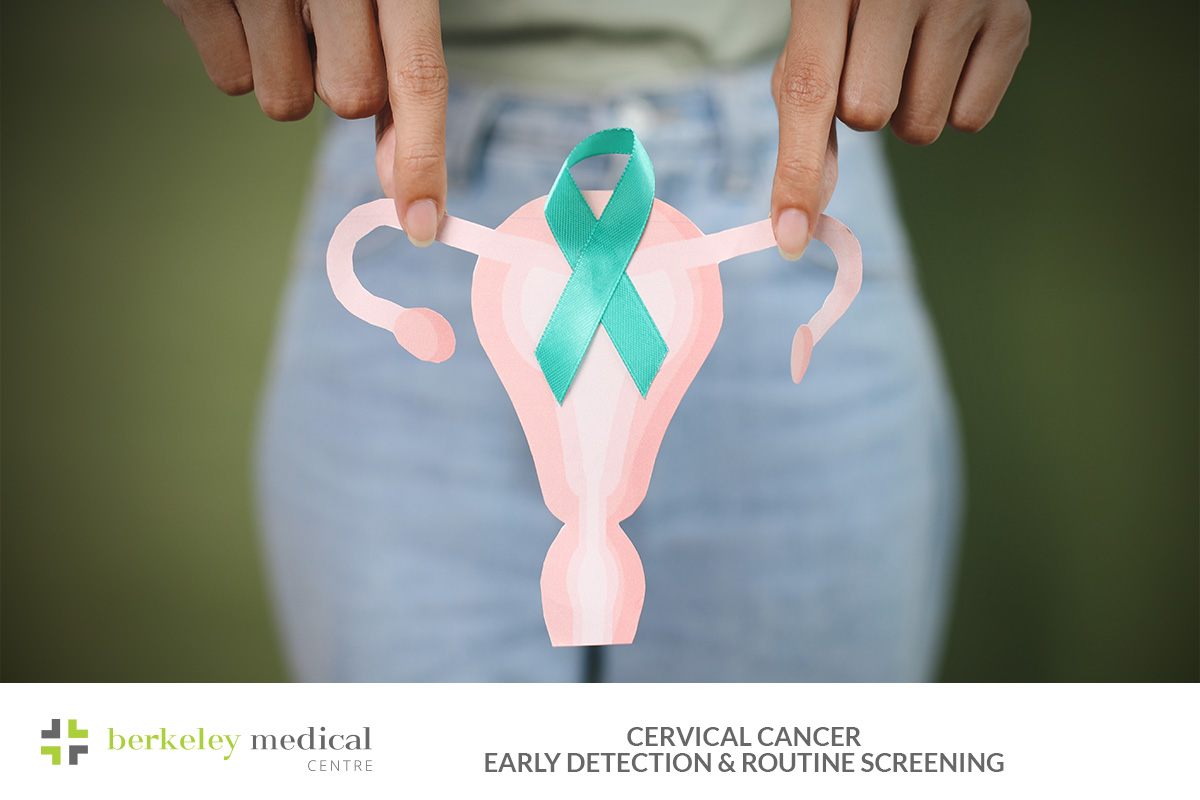Cervical cancer is one of the most preventable cancers affecting women and people with a cervix. Thanks to modern screening programs and early intervention, thousands of lives are saved each year in Australia. However, many people still delay or avoid cervical screening sometimes due to fear, discomfort or simply not knowing how important it really is.
Early detection is the key to preventing cervical cancer. Regular screening helps identify human papillomavirus (HPV) before it causes abnormal cell changes in the cervix. When detected early, these changes can be treated well before they progress into cancer.
In this article, we explore why routine cervical screening matters, how it works and what your options are so you can take control of your cervical health with confidence.
Why Cervical Screening Saves Lives
Cervical cancer typically develops slowly. It often begins with small changes in cervical cells caused by persistent infection with high-risk strains of human papillomavirus (HPV). These early cell changes do not usually cause symptoms, making regular screening crucial.
Most HPV infections clear on their own. However, if the virus stays in the body, it can lead to abnormal cervical cells that may eventually turn into cancer. The Cervical ScreeningTest detects HPV before cancer has a chance to develop.
By catching these early warning signs, screening can prevent around 90% of cervical cancers. That’s why it is considered one of the most effective tools in women’s health care.
Who Should Get a Cervical Screening Test?
Cervical screening is recommended for:
- People aged 25 to 74 who have a cervix
- Anyone who has ever been sexually active, regardless of current activity or gender identity
You should get a Cervical Screening Test every five years, even if:
- You feel perfectly healthy
- You have had the HPV vaccine
- You are no longer sexually active
- You have not had any symptoms
If you have had a hysterectomy, speak with your doctor to check whether you still need screening. People over 75 can also request a subsidised screening if appropriate.
What Is HPV and Why Does It Matter?
HPV is a common virus and most people who have ever had sex will contract it at some point. While most infections go away on their own, some strains especially HPV 16 and 18 can cause serious complications, including cervical cancer.
That’s why it is critical to screen for HPV, not just cervical abnormalities. The Cervical Screening Test is designed to detect the presence of high-risk HPV strains long before symptoms appear or abnormal cells develop.
This early intervention helps you avoid unnecessary worry and potential illness later on.
Screening Options: Self-Collection or Clinician-Collected Sample
From 1 July 2022, the National Cervical Screening Program began offering all eligible people the choice between two testing options:
Self-Collection
You can now collect your own sample using a simple vaginal swab in a private space at your clinic. This is a great option if you feel nervous or uncomfortable with a traditional pelvic exam.
A healthcare provider will explain the process and ensure you feel confident performing the test. Self-collected samples are just as accurate as clinician-collected ones for detecting HPV.
Clinician-Collected Sample
This is the traditional method. A trained doctor or nurse will insert a speculum and collect a small sample of cells from your cervix using a soft brush. It takes just a few minutes and may be recommended in specific clinical cases.
Both options are equally safe and you can choose the one that best suits your comfort and needs.
What Happens After the Test?
Your sample is sent to a laboratory to check for HPV. Once results are ready, your healthcare provider will explain what they mean and whether you need any follow-up.
Here’s what your result might indicate:
- HPV not detected – Your next test is due in five years
- HPV detected (low risk) – A follow-up test is recommended in 12 months
- HPV detected (high risk) – Further testing or referral to a specialist may be needed
- Unsatisfactory sample – A repeat test is required in 6–12 weeks
Remember, a positive result does not mean you have cancer it means your provider can monitor your health closely and take action early if needed.
When and Where to Get Screened
If you are due (or unsure when your last test was), you can:
- Check your status via the National Cancer Screening Register
- Contact your regular GP or local health service
- Visit a women’s health clinic, community health centre or family planning service
Screening is free under Medicare for eligible patients. If you are more comfortable with a female clinician or wish to choose self-collection, you can request these options when booking.
Even if you have never had a test before, it is never too late to start.
Why You Should not Wait
Many people delay cervical screening because they feel fine, they are unsure of the process or they are embarrassed. But cervical cancer often shows no symptoms in its early stages. That’s why waiting until something feels wrong can be dangerous.
Getting screened is a simple, five-minute act that could prevent years of illness or even save your life. Think of it as part of your regular self-care, just like a skin check or dental exam.
Prevention Is Powerful
Cervical screening is not just about detecting illness it is about preventing it altogether. By taking part in the National Cervical Screening Program, you are doing something proactive, empowering and life-affirming.
Regular testing allows you to take charge of your reproductive health and detect risks before they become problems. When you prioritise screening, you invest in your future health and give yourself the peace of mind that comes with it.
How Berkeley Medical Centre in Kenmore Can Help
At Berkeley Medical Centre, we support patients throughout Brisbane’s western suburbs with accessible, compassionate cervical screening services. Whether you are due for your routine screening or you are getting tested for the first time, we are here to make the experience respectful, simple and reassuring. Do not wait book your Cervical Screening Test in Kenmore today and take a powerful step toward preventing cervical cancer.







